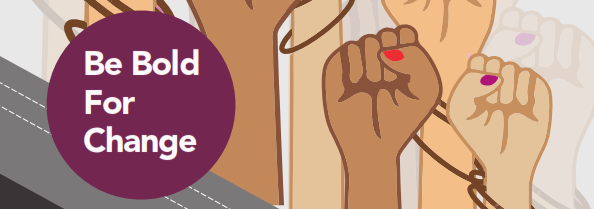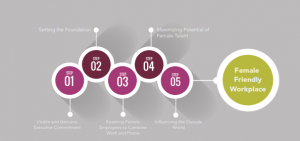Three years ago, Engage Women conducted the first ever Women At Work survey with the objective to understand how corporate Pakistan was driving the need for more gender diverse and female friendly workplaces. Being the first of its kind, it provided the necessary benchmark that was needed to gauge the impact of global and local influences on diversity.
In recent years, there’s been much chatter about women at work – be it Hollywood or the corporate world, women are being more vocal about issues like equal pay, opportunities, work and life balance. Last year we conducted our second survey to and the results, unsurprisingly, weren’t exponentially better. But there’s always hope!
In 2016, along with the 1,167 women we surveyed across the 24 multinational and local companies of Pakistan, we included over 1,000 men as well to gain insight on their perception of gender diversity matters. Their input has contributed a great deal towards the success (or lack of it) of an organization’s objective to truly harvest a female friendly workplace. But what constitutes a female friendly workplace? In our experience, focusing on these five components exhibited below will yield strong catalysts that foster a diverse work environment.
What’s Working So Far
Probably the starting point to resolve any challenge is by setting straight the rule books. In the corporate world this would mean establishing the necessary policies and procedures that align employees and company practices towards an ideology. So that basically addresses setting the foundation that focuses on a female friendly workplace by adapting talent management processes to enable gender diversity and creates a safer work environment. Probably the most encouraging finding was that a great majority of the women we surveyed felt respected (89%) and safe (87%) at work. That of course sets the tone for a workplace environment that’s encouraging to its women.
Further validating their employer brand is how 75% of women endorse their organization as a good employer and feel that men and women get equal pay and bonuses for similar performance. This of course is contrary to the World Economic Forum’s (WEF) report which claims the average earning of women is half that of men. It’s massively encouraging to find this in our survey, particularly at a time when globally women are vocally challenging their remuneration.
Our female respondents also had an interesting view about their line managers, who of course play a key role in defining the workplace environment. Their daily interactions with the team and leadership style are conducive to how safe, secure, encouraged and fairly treated women feel at the office. And while 26% of women were finding it challenging to balance their work and personal life, the same percentage felt their line managers were actively supportive of their strive for balance. Interesting to add also is how 69% of women felt their line managers were aware of gender related barriers and were supportive to overcome them. Hat’s off to the line managers who’re aware of the challenges women face and facilitating an environment that favors women.
Where Much Refinement Is Needed
To a large extent, Pakistani women, much like their Asian counterparts are still highly impacted by what McKinsey & Company call the “double burden” syndrome. As primary caretakers women face an uphill challenge to balance their work and personal lives leading to career barriers. To enable them to progress their careers, women need better childcare support both at home and at work and the ability to work from home. These, however, are still lagging far behind. Only 49% of the women we surveyed gave a favorable response to the support they received at home. The percentage was lower (44%) when discussing childcare support received at work. And while 51% were comfortable with the work-from-home setup they received from their employers, the number isn’t high enough to state that telecommuting is part of Corporate Pakistan’s ideology as yet.
Adding to women’s burden are personal commitments such as attending their children’s school obligations and doctor visits. 47% voiced their inability to fulfill these commitments which really is a vital part of their lives. What’s more surprising is that this percentage has rising by 7% since our last survey in 2013.
Beyond the support they receive, women also weren’t too thrilled about their transition back to work after being on maternity leave. The pause in their career is a critical part of life, however, what’s key here is how well their employer orchestrates their return to work. Unfortunately, 52% felt they could have had a softer landing back into their professional routine.
In contrast, men are relatively unaffected by the double burden syndrome which of course directly contributes to their professional success. 73% of the men we surveyed were comfortable with their ability to oversee personal commitments. The high percentage provides testament to the fact that women, by and large, are the primary caretakers of their children and home.
The Uphill Battle
Clearly organizations in Corporate Pakistan are taking the first steps towards creating an environment that’s conducive to women and diversity, however, that alone isn’t merely enough. To truly make an impact on the numbers and environment the leadership has to commit to the cause whereby they’re developing a culture that encourages women. It’s face to say that Corporate Pakistan is in need of a mindset shift which alters its perception of the role of women in the corporate world.
Basically, women need more encouragement to be able to flourish and progress. This is validated by the fact that 48% of the women we spoke to felt that their career progression is dependent on their ability to exhibit male leadership characteristics. Furthermore, only 63% of women are willing to make personal sacrifices to achieve their professional ambitions. While in men, 71% are willing to do the same. And then only 62% feel confident they’ll achieve a top management position while 74% of men felt that way. Interestingly, though while 77% women feel their contributions are significant, there’s a clear gap in gender confidence which needs to be addressed in order for women to believe their efforts will lead to progression.
What’s Next?
Societal pressures and obligations still restrain women to a large extent. While the past decade has seen a rise in women’s role and contributions towards Corporate Pakistan, the impact is still not as significant. The surveys we’ve conducted in the past three years have yielded minimal results that suggest gender diversity has truly been embraced. Sure, there’s been some progress, but the pace is too slow to actually dent the gender gap.
Policies alone can’t resolve this serious matter. It’s a collective effort that needs to occur – starting with the leadership’s commitment to nurture a diverse workplace, maximizing women’s potential and exploiting their talents and enabling women to manage work and personal life. All these are the necessary catalysts that can positively impact gender diversity in Pakistan (and anywhere in the world for that matter).
While the Pakistani societal mindset can’t be changed overnight, the corporate world can play a significant and pivotal role in pushing the change by creating a workplace that’s conducive to women. What we need for this to happen might well disproportion support and protection for women. Sure, some men may not get what they want, however, for the past millennia men have had the upper hand in a vast majority of opportunities and resources. It’s time we changed that around at an individual, organizational and societal level to foster an environment that gives our women the upper hand.
Interested in gaining more insights on our findings? You can download the entire report and see what else we found about women at work.
Like what you read? Subscribe to the Keijzer Community and get updates to your inbox. You’ll also get a free download which will help you take your leadership teams through a growth model which will help them mature on a personal and professional level.




